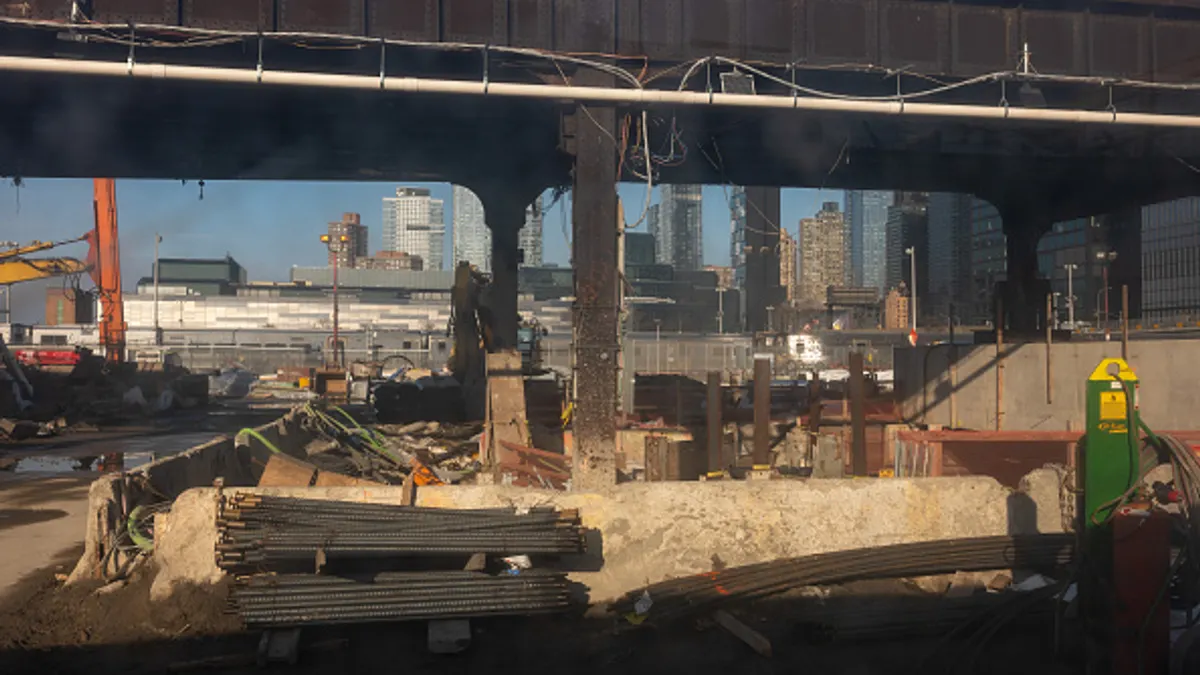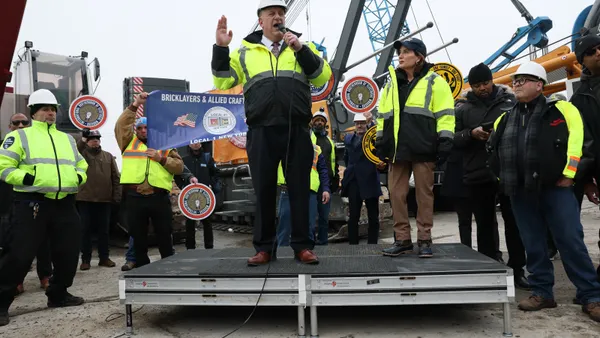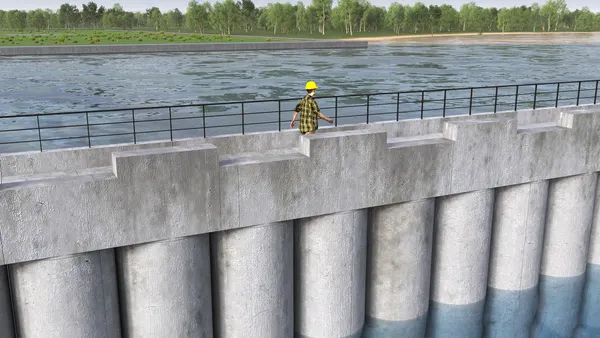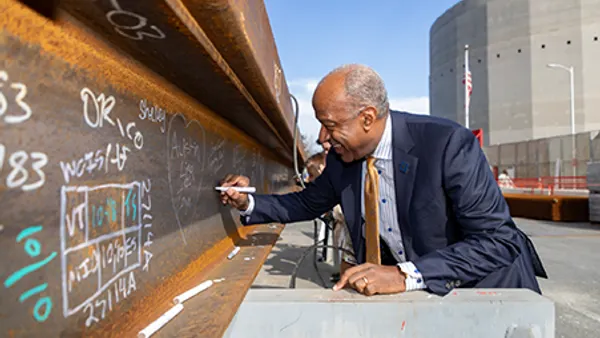UPDATE: In a vote on Friday, New Jersey lawmakers approved a gas tax increase of 23 cents per gallon. The bill raises the tax from 14.5 cents and also includes $1.4 billion in state and sales taxes in an effort to revive the state's expired transportation fund, according to NJ.com.
Dive Brief:
-
New Jersey Gov. Chris Christie announced on Sept. 30 that his administration and state lawmakers reached a Transportation Trust Fund deal that includes a 23-cent increase in the state's gas tax — the first since 1988 — in exchange for broad-based tax breaks for New Jersey residents.
-
State Democrats have agreed to a phased-in, 0.375% reduction in the state sales-tax rate, as well as an elimination of the estate tax and more income tax breaks for retirees, veterans and the working poor. The State Legislature is expected to pass the measure in a special committee hearing and voting session Wednesday.
- Christie and state legislators have long agreed on the gas-tax increase as a way to recharge the near-empty TTF, but he and state Democrats reached a June impasse as to how the increase would be counterbalanced with tax breaks. After failed negotiations, Christie stopped all non-essential road and highway work, which should resume after Wednesday's vote.
Dive Insight:
This is a victory for Christie, who insisted on a sales-tax decrease as a way to deliver what he calls "tax fairness" to New Jersey residents, even though he didn't win the full 1% cut he initially demanded. This is also a possible win for highway and bridge construction workers who have been sidelined by Christie's stop-work order. However, with much of the outdoor construction season gone, it remains to be seen how much work they can get done before winter sends them packing again.
Critics said the plan lacks strong support and that it is being pushed through to a quick vote to limit discussion. However, there have already been significant estimated costs to taxpayers as a result of the construction shutdown. The executive director of the Utility and Transportation Contractors Association said the de-mobilization and re-mobilization costs incurred by construction companies could increase the work's total price by 10%. That amounts to an extra $24 million for work in progress at the time of the stop-work order.
It's been a long road to common ground for New Jersey lawmakers. Christie, unmoved by pleas from the construction industry and county administrators to strike a deal, also rejected a mid-July, Democrat-authored plan for a $900 million tax-breaks package presented as a way to resolve the stalemate. Christie did acquiesce slightly in August, however, when he authorized interim financing from the state's general fund for essential projects.













